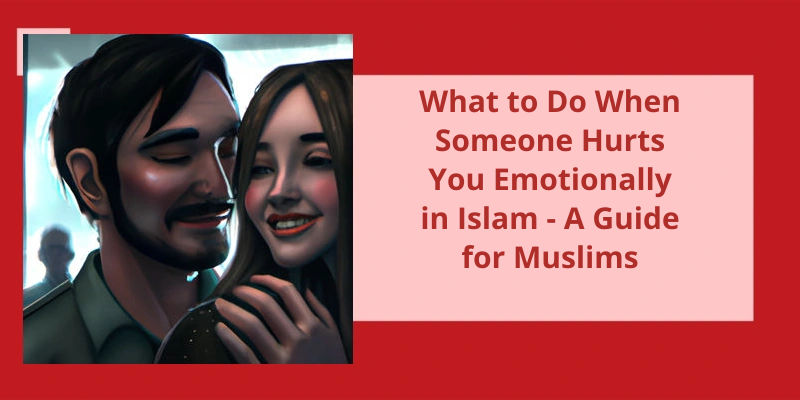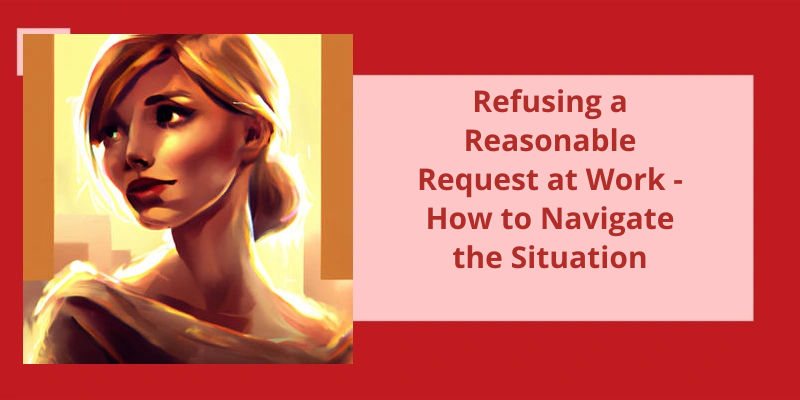Islam emphasizes the importance of forgiveness and compassion towards others, especially in times of emotional pain and distress. When someone hurts you, it’s important not to keep the resentment and anger inside of you. Holding grudges and feeling resentful towards others can lead to negative energy and a sense of being stuck in the past. Instead, it’s advised to forgive the person and move on with a conscious intention to let go of the hurt, and seek inner peace and contentment. Through Islamic teachings, one can learn how to manage their emotions in difficult situations and find consolation in faith, leading to a healthier and happier state of mind.
Is Hurting Someone’s Feelings a Sin in Islam?
However, if you’re someone who’s hurt somebody else, it’s important that you seek forgiveness from them as well as from Allah. We all make mistakes, and it takes courage to admit them and ask for forgiveness. Allah is merciful, and if we sincerely repent and seek forgiveness, He’ll forgive us.
Islam teaches us to be kind and compassionate towards others. The Prophet Muhammad (peace be upon him) taught us to speak kind words and to avoid hurting other peoples feelings. He said, “The most beloved of deeds to Allah is the most pleasing of deeds to his servant, and the most disliked of deeds to Allah is the one that causes harm to his servant.”
Therefore, as Muslims, we’ve a responsibility to be mindful of the impact our words and actions have on others. It’s important that we don’t intentionally hurt anybodys feelings, and if we do unintentionally hurt someone, we should apologize and make amends.
It’s also important to remember that hurting someones feelings can lead to long-lasting emotional trauma. Words have a powerful effect on our psyche, and negative comments can stick with a person for years, causing emotional pain and suffering. Therefore, we should be careful with the words we choose to use when interacting with others, especially those who’re emotionally vulnerable.
In summary, hurting someones feelings is a sin in Islam. Remember that forgiveness is always possible if we sincerely repent and seek forgiveness from Allah and those we’ve wronged.
The Importance of Empathy in Relationships in Islam
- Empathy is an essential element in maintaining healthy relationships in Islam.
- Islam encourages believers to cultivate empathy towards others regardless of their social background and religious affiliation.
- Empathy involves putting oneself in someone else’s shoes, understanding their feelings, and responding in a way that demonstrates care and concern.
- Empathetic relationships are characterized by mutual respect, trust, and understanding.
- Empathy helps to strengthen the bonds between spouses, families, and friends and fosters a more peaceful and harmonious society as a whole.
- In the Islamic tradition, the Prophet Muhammad (PBUH) is considered the ultimate example of empathy and compassion towards all people, regardless of their beliefs or social status.
- Empathy should be practiced in all aspects of life, from personal relationships to business and public affairs.
- Empathy isn’t only beneficial to the recipient but also to the giver, as it cultivates a sense of humility, kindness, and emotional intelligence.
- By prioritizing empathy in our relationships, we align our actions with the values of Islam and contribute to a more compassionate and just society.
Dealing with emotional pain can be challenging, especially when it stems from someone you care about. It’s important to take the time to process your feelings, and not let them consume you. In this article, we’ll explore 15 ways to help you navigate these difficult emotions and come out stronger on the other side.
What to Do When Someone Hurts You Emotionally?
Dealing with emotional pain can be one of the most difficult things to do in life. It’s not easy to overcome the feelings of betrayal, hurt, or disappointment that come with someone hurting you emotionally. However, it’s important to understand that you’ve the power to control your own feelings and take steps to move forward. One of the first things to do when someone hurts you emotionally is to think about the situation. Try to analyze the situation and understand what exactly happened that caused you to feel hurt. Was it something they did or said that was particularly hurtful? What were your expectations in the situation? Understanding the situation can help you process your emotions better.
Often, people tend to take things personally when someone hurts them emotionally. However, it’s important to realize that hurtful behavior is more about the other person than it’s about you. So, try not to blame yourself or believe that you deserved to be treated poorly. In fact, focusing on yourself is a great way to deal with emotional pain. Try to shift your focus away from the person who hurt you and spend time doing things that make you feel happy and fulfilled. This can include hobbies, exercise, or spending time with loved ones.
If you feel that you need to communicate with the person who hurt you, then try reaching out to them via text or phone call. This can be difficult, but it’s important to express your feelings and let them know how their actions affected you. Alternatively, you can choose to meet new people to help shift your focus away from the person who hurt you. New experiences and building new connections can help you break free from negative emotions and feel better about yourself.
Speaking with close friends or family members can also be beneficial when it comes to dealing with emotional pain. These people can act as a sounding board for your emotions and provide support and comfort when you need it. Additionally, trying to see things from another perspective can be helpful in moving on from hurtful situations. It’s always wise to look at the situation from different angles and try to understand the other persons point of view.
Finally, it’s important to remind yourself of your own innate worth and beauty. When someone hurts you emotionally, it’s easy to feel like you aren’t good enough or that you somehow played a role in their actions. However, it’s crucial to recognize that you’re valuable and worthy of love and respect. Remind yourself of your positive qualities, things youre thankful for, and things you like about yourself. Doing this on a regular basis can help to boost your self-confidence and promote emotional healing.
Source: 15 ways to deal with someone who hurt you emotionally
Dealing with pain and grief is an inevitable part of life, and Islam offers practical ways to manage these hardships. By acknowledging the source of the trial, allowing oneself to experience the pain, finding things to be grateful for, and using the pain to make dua, Muslims can find peace and comfort in difficult times. In this article, we will explore these concepts in more detail and discuss how to treat pain in Islam.
How to Treat Pain in Islam?
Pain is a natural part of life that no individual can escape. Whether physical, emotional, or spiritual, pain can be overwhelming and immobilizing. It’s often associated with grief, loss, and suffering. However, Islam provides believers with practical ways to deal with pain and grief.
One important aspect of dealing with pain in Islam is acknowledging the source of the trial. Muslims believe in the concept of Qadr or predestination, which implies that everything that happens is part of God’s plan. Therefore, it’s vital to recognize that the pain and suffering one experiences are part of Allah’s decree and are intended as a test of faith. This understanding can help individuals accept their pain and move on to identify ways to cope with it.
This requires acknowledging the pain, recognizing it’s impact, and allowing oneself to feel the emotions associated with it. Suppressing or ignoring the pain can lead to negative consequences such as depression or anger. Islam encourages believers to express their emotions in healthy ways and not to feel ashamed of them.
Gratitude is another practical way to deal with pain in Islam. It involves finding things to be grateful for even in the darkest of times. This is demonstrated by the famous Hadith of the Prophet Muhammad (S.A.W), which states, “How wonderful is the case of a believer; there’s good for him in everything and this applies to no one but a believer. If prosperity comes to him, he’s thankful, and that’s good for him; and if adversity befalls him, he’s patient, and that’s good for him.”. (Muslim) A grateful attitude can make it easier for one to find comfort and hope during difficult times.
In addition to expressing gratitude, Muslims can use their pain to make Dua or supplication to Allah. Dua is a form of worship that allows believers to connect with God directly. Making Dua during times of hardship can bring immense comfort and calmness to ones heart. The Prophet Muhammad (S.A.W) said, “Know that help comes with patience, relief with affliction, and ease with hardship.”. (Tirmidhi)
The Concept of Physical and Emotional Pain in Islam: Discussing the Islamic Perspective on Pain, It’s Nature, and How It Affects Individuals.
This article explores the Islamic approach towards pain, both physical and emotional, and how it impacts individuals. It discusses the nature of pain according to Islamic beliefs and provides insights into how Muslims understand and cope with pain.
Forgiveness is a difficult process, especially when the person who hurt you continues to do so. It requires a great deal of emotional strength to let go of the pain and release the control that the situation has had over your life. By acknowledging your feelings and choosing to forgive, you can take the first step in finding peace and moving forward.
How Do You Forgive Someone Who Continually Hurts You?
Forgiving someone who continually hurts you can be a challenging process. It isn’t an easy task to release the feelings of anger, resentment, and pain caused by the harm done to you. To start, it’s essential to acknowledge these emotions and recognize how they affect your behavior. It can be helpful to write down your feelings to get them out of your head and onto paper.
Next, it’s important to work on releasing these emotions. Holding onto anger and resentment can be harmful to your mental and physical health. Holding onto these negative feelings can also affect your relationships with others. Finding a way to release these emotions can help you move forward in the forgiveness process.
Choosing to forgive the person who’s hurt you can be a hard decision to make. Forgiveness isn’t something that can be forced, it’s a choice. Forgiveness can be helpful for your own growth and healing. It can also allow you to let go of the control and power that the offending person and situation have had in your life.
It’s important to remember that forgiveness doesn’t mean forgetting what happened or condoning the behavior. It’s about releasing yourself from the negative emotions and regaining control of your life. This support can help you process your emotions and gain a new perspective.
Finally, after forgiving someone who continually hurt you, it’s important to set boundaries to protect yourself from future harm. Forgiving doesn’t mean allowing behavior to continue. Setting boundaries will help you maintain a healthy relationship with the person and protect yourself from future harm. This may mean limiting contact, ending the relationship or seeking professional help. Remember, forgiveness is a journey, and it’s a process that takes time and effort.
Effective communication is key when someone constantly hurts your feelings or has deeply hurt you. It’s important to express how their actions or words have affected you, while also giving them the opportunity to understand from your perspective. Here are some practical tips on what to say when approaching this sensitive conversation.
What to Say to Someone Who Constantly Hurts Your Feelings?
When someone constantly hurts your feelings, it can be difficult to know what to say to them. You may feel angry, hurt, or resentful, but it’s important to communicate your feelings in a calm, respectful manner. One approach is to use “I” statements, such as “When you said _____, it made me feel ____.”. This can help the other person understand how their actions have affected you, without placing blame or attacking them.
Another option is to express your hurt and confusion directly, such as saying “That was hurtful and I don’t know why you’d want to cause me harm.”. This can be an effective way to start a conversation about how the other persons words or actions have impacted you, and to begin working towards a resolution.
If someone has hurt you deeply, it can be even more challenging to find the right words to say. It’s important to remember that healing from emotional pain takes time and effort, and it’s okay to take a step back and focus on your own well-being if needed. When you’re ready to confront the person who hurt you, it’s important to do so in a way that feels safe and empowering for you.
One practical approach is to use “I” statements to express how you feel and what you need from the other person, such as saying “I feel betrayed because I thought we’d a good relationship and I trusted you.”. This can help the other person understand the impact of their actions, while also setting boundaries and expressing your own needs.
It’s also important to be clear about what you expect from the other person moving forward. This might mean asking for an apology, setting limits on communication or contact, or outlining specific actions that need to take place in order to rebuild trust.
Ultimately, communication is key when it comes to healing from emotional pain caused by others. By expressing your thoughts and feelings in a clear, respectful way, you can set the stage for a healthy, productive conversation that can help you move forward and rebuild your relationships, or decide that it’s time to let go and move on.
How to Set Healthy Boundaries in Relationships to Avoid Being Hurt Constantly.
- Communicate your needs clearly and assertively.
- Recognize and respect your own limits.
- Identify and prioritize your values.
- Learn to say no without feeling guilty.
- Don’t sacrifice your own well-being for the sake of others.
- Be mindful of red flags in relationships.
- Set consequences for boundary violations.
- Surround yourself with supportive and respectful people.
- Remember that it’s okay to end toxic relationships.
The teachings of Islam emphasize the importance of treating one’s spouse with love and kindness, and this is especially true when it comes to avoiding harmful actions. In fact, Allah (swt) has specifically warned against hurting one’s wife and has prohibited the use of derogatory language or humiliation towards one another. These teachings illustrate the importance of cultivating healthy and positive relationships with our spouses, and the harmful effects of abusive behavior.
What Does Islam Say About Hurting Your Wife?
Islam highlights the importance of a happy and healthy relationship between a husband and wife. The Holy Quran reminds us that wives aren’t just partners but also are companions and helpers to their husbands. It’s the duty of a husband to treat his wife with love and compassion, and to maintain a respectful and dignified relationship. This means that any form of abuse or harm is strictly prohibited.
In Islam, hurting your wife is considered a grave sin, and is something that Allah (swt) condemns. The Prophet Muhammad (PBUH) was known for his kindness towards his wives and his followers are encouraged to follow in his example. He made clear that verbal, physical, and emotional abuse is unacceptable and not in line with the teachings of Islam.
Muslims believe that marriage is a sacred bond and that both husband and wife should strive to maintain it. This involves being kind, loving and supportive to each other through thick and thin. Allah (swt) implores us to have compassion towards our wives and to always be mindful of their feelings. Hurting your spouse isn’t only a breach of trust, but it can also break the bond of marriage and ultimately lead to a breakdown in the relationship.
Examples of Ways to Show Love and Compassion Towards Your Wife in Islam
There are numerous ways to show love and compassion towards your wife in Islam, such as spending quality time with her, listening to her concerns, assisting with household chores, supporting her emotionally and financially, displaying affection, and showing gratitude for all that she does. Islam emphasizes the importance of treating one’s spouse with kindness, love, and respect, as it promotes a healthy and harmonious relationship in a marriage.
Conclusion
As an Islamic teaching, forgiveness is an essential part of one's spiritual growth and development. When someone hurts you, it's easy to hold onto the pain and anger, but it's important to remember that forgiveness isn’t just for the person who hurt you, but also for yourself. Holding onto resentment and anger can lead to a life of misery and pain, but through forgiveness, you can free yourself from the past and move forward. It may not be easy, but through prayer, reflection, and patience, you can find the strength to forgive and begin the healing process. Ultimately, forgiveness is about letting go and embracing the mercy and compassion of Allah. By doing so, you can find peace and happiness in both this life and the hereafter.






